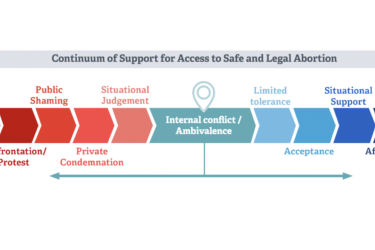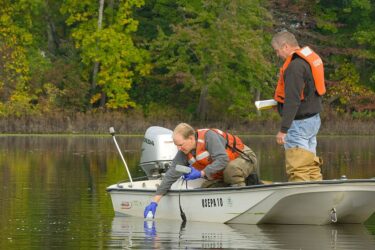
The controversy that has plagued Cornell nutrition researcher Brian Wansink for nearly two years culminated with his resignation from Cornell, the school announced Sept. 20. Wansink, a charismatic and incredibly prolific academic who frequently courted the media, made the announcement the day after JAMA retracted six of his studies that it had warned in April were under review. (Disclosure: I have interviewed Wansink for articles and cited his research in a book I coauthored.)
Cornell conducted a yearlong review that determined Wansink “committed academic misconduct in his research and scholarship, including misreporting of research data, problematic statistical techniques, failure to properly document and preserve research results, and inappropriate authorship,” the Washington Post reported.
If you’ve followed Wansink’s saga, it almost reads like a Greek tragedy, complete with hubris as the fatal flaw at the center of everything. Wansink’s woes began with his own blog post, which led several young researchers to examine his work and identify substantial discrepancies in his data — to the point of suggesting significant negligence at best. Aside from the researchers themselves, BuzzFeed reporter Stephanie M. Lee, The Cut reporter Jesse Singal and Retraction Watch have done the best job following the story.
As questions mounted, so did Wansink’s corrections and retractions. Throughout the downward spiral, Wansink has maintained that all his work was in good faith. As Retraction Watch reported in a post containing Wansink’s complete statement, the scientist “insists that there was ‘no fraud, no intentional misreporting, no plagiarism, or no misappropriation.’”
Wansink is neither the first nor the last researcher whose career was cut short by the substantial problems, intentional or not, fraudulent or not, identified in his research. But he’s among the most prominent — and disappointing for many media folks (myself included) who found his work fascinating — and he has become a poster boy of sorts for the plight of social science research in general right now. As excellent analysis pieces at NPR, The Atlantic and The New York Times discuss, the rigor of research in both the social sciences and nutrition has received extra scrutiny in recent years, and it’s important for health journalists to be aware of these concerns and what changes they may bring.
The coverage of Wanisnk’s downfall has been extensive, and it’s a far-reaching enough cautionary tale to spend some time understanding. If you’d like to dig deeper, below are some of the best articles on the story:
- Feb. 3, 2017 — Do Men Eat More Pizza in Front of Women?, Slate
- Feb. 8, 2017 — A Popular Diet-Science Lab Has Been Publishing Really Shoddy Research, The Cut
- March 2, 2017 — Cornell’s Food and Brand Lab Appears to Be Melting Down, The Cut
- March 2, 2017 — Fresh concerns raised over academic conduct of major US nutrition and behaviour lab, The Guardian
- March 21, 2017 — The Wansink Dossier: An Overview, The Skeptical Scientist
- Oct. 18, 2017 — Here’s How A Controversial Study About Kids And Cookies Turned Out To Be Wrong — And Wrong Again, BuzzFeed
- Oct. 23, 2017 — The Cookie Crumbles: A Retracted Study Points to a Larger Truth, New York Times
- Nov. 29, 2017 — Cornell Is Investigating the Head of Its Famed Food Lab for Scientific Misconduct
- Sept. 24, 2018 — A Credibility Crisis in Food Science, The Atlantic
- Feb. 25, 2018 — Here’s How Cornell Scientist Brian Wansink Turned Shoddy Data Into Viral Studies About How We Eat, BuzzFeed
- Sept. 25, 2018 — This Cornell Food Researcher Has Had 13 Papers Retracted. How Were They Published in the First Place?, Mother Jones
- Sept. 26, 2018 — Cornell Food Researcher’s Downfall Raises Larger Questions For Science, NPR
- Sept. 27, 2018 — Emails Show How An Ivy League Prof Tried To Do Damage Control For His Bogus Food Science, BuzzFeed
- Sept. 29, 2018 — More Evidence That Nutrition Studies Don’t Always Add Up, New York Times









